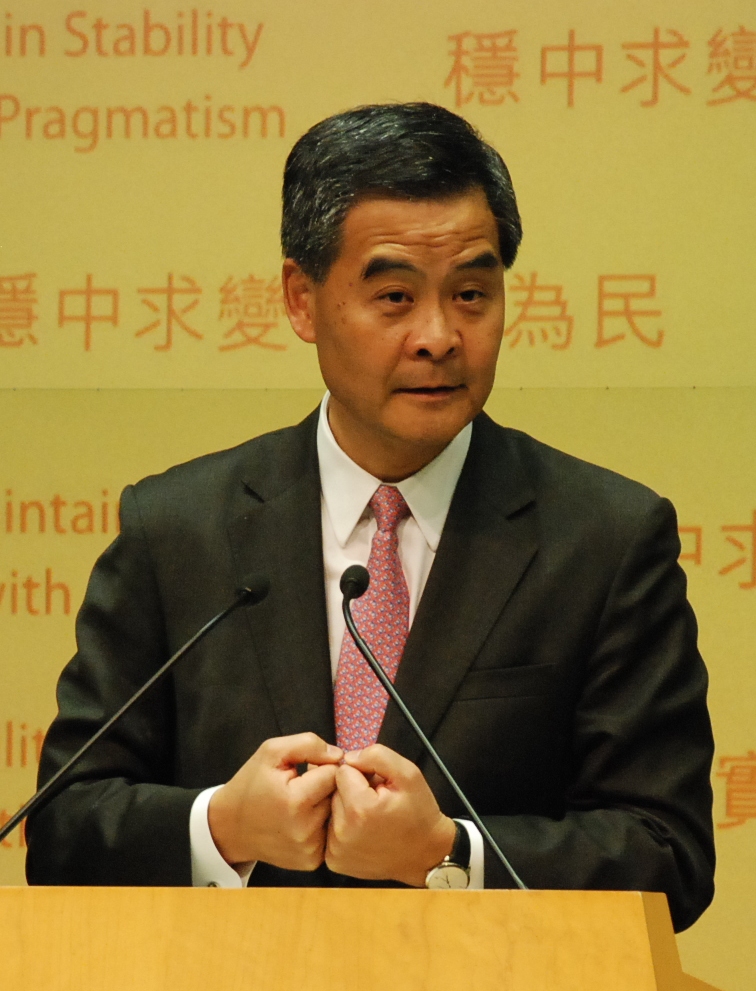by Brian Hioe
語言:
English
Photo Credit: Iris Tong/CC
IS HONG KONG at a crucial turning point? Hong Kong Chief Executive elections are upcoming, but they come at a time in which the Hong Kong government system is under severe duress.
Namely, of the three frontrunners, Regina Ip, Carrie Lam, and John Tsang, Ip and Lam are strongly disliked by many for their pro-Beijing views. All three candidates sought Beijing’s approval before running for Chief Executive. Lam appears to be currently favored by Beijing, however, with heavy-handed attempts to portray Lam positively in pro-Beijing newspapers. Notably, previous Chief Executive CY Leung announced that he would not be pursuing re-election, possibly ordered to stand down by Beijing due to his poor handling of the Umbrella Movement and subsequent political developments in Hong Kong.
Yet questions of the Hong Kong government’s relation to Beijing are generally up in the air, with the disqualification of localist lawmakers Baggio Leung and Yau Wai-Ching after a controversy in which they did not correctly take their oaths to be sworn in as legislators. With Leung and Yau losing their final appeal against this ruling and being ordered to pay not only the legal costs of their court cases but to return to their salaries as lawmakers, Leung and Yau have vowed “war” against the Hong Kong government after the ruling, likely marking the return of localists political candidates to the streets after a period in which localists attempted to enter into electoral politics.
 Current Hong Kong Chief Executive CY Leung. Photo credit: VOA
Current Hong Kong Chief Executive CY Leung. Photo credit: VOA
This purge of Hong Kong legislators, which comes at Beijing’s hands, illustrates that the Hong Kong government is fundamentally beholden to Beijing. Beijing’s purge of Hong Kong lawmakers may expand to include both new lawmakers such as Edward Yiu, Nathan Law, and Lau Siu-Lai, as well as pan-Democratic veteran “Long Hair” Leung Kwok-hung. Recent indications are that these individuals will also be forced to shoulder their legal bills, as also occurred with Leung and Yau, very likely as a form of legal punishment.
Elections for Hong Kong’s Chief Executive are highly undemocratic from the onset, with Hong Kong’s highest official chosen by a 1,200 member election committee rather than the general public. While publicly elected legislators are part of this committee, the election committee allows corporate interests to have a direct say in Hong Kong’s choice of top official, and not the general public. This is also true of Hong Kong’s legislature, in which corporate-elected “functional constituencies” number nearly as much as popularly elected legislators. But, at the end of the day, Beijing also has a significant amount of say in who is allowed to be a member of the Chief Executive election committee, making this another mechanism by which Beijing can exert control over Hong Kong.
Regardless of the outcome, Hong Kong’s population may be more keenly aware of this fact than before. If Carrie Lam proves to be the likely winner of Chief Executive elections, she is seen as pro-China and embroiled in much of the same shady politics that Leung was, given a recent scandal involving funding for the Hong Kong branch of the National Palace Museum.
The National Palace Museum controversy is a sensitive issue that touches not only on Hong Kong’s relation to China, given that the National Palace Museum is a significant soft power project intended to draw Hong Kong into China’s cultural sphere, but local issues. The previous Leung administration saw criticism for its lack of transparency and involvement in shady land deals in which Leung may have worked with real estate groups with ties to organized crime in exchange for kickbacks. Lam currently is seeing similar controversy over why exactly the architect for National Palace Museum was chosen.
Anxieties about Hong Kong’s democratic future are also on the rise, as also observed with organized attacks on Nathan Law and Joshua Wong of Umbrella Movement fame by pro-China forces after a recent visit to Taiwan. The Hong Kong police has proven reluctant to track down culprits. The reluctance of the Hong Kong police to investigate the cases of Hong Kong booksellers who published books critical of China who were kidnapped by China already illustrated that the Hong Kong police, too, operates at China’s behest, and the Hong Kong police has been accused of arresting protest ringleaders on trumped up charges. Yet the recent attacks of pro-Beijing forces have proved shocking because of their impunity and mass scale. Some view this as unintended blowback of localist groups resorting to violence to halt intimidation campaigns by using force. The public withdrawal of localist group Civic Passion from street protests may be an early sign of intimidation from localist groups in Hong Kong due to Beijing’s political targeting.
It could be that a combination of all these factors leads to a fundamental crisis of legitimacy for the Hong Kong government quite soon. In truth, this will just be the realization that the Hong Kong government is solely Beijing’s instrument of rule in Hong Kong, which residents of Hong Kong should have realized from the onset. Nevertheless, this may stir the winds of protest in Hong Kong once again. With no holds barred, two years down the line from the Umbrella Movement, the outcome will be uncertain.

